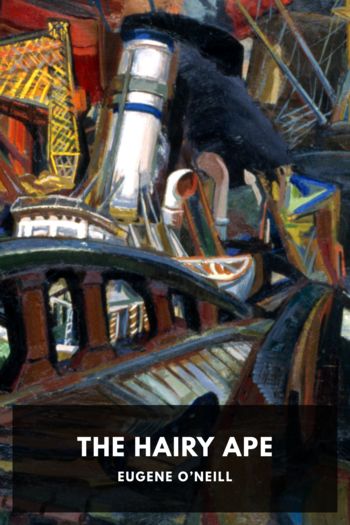The Atmospherians by Alex McElroy (reading fiction .TXT) 📗

- Author: Alex McElroy
Book online «The Atmospherians by Alex McElroy (reading fiction .TXT) 📗». Author Alex McElroy
The men lowered the station wagon off its jack and departed in separate directions. They would probably never speak to one another again. The driver sped away, flipping them off out the window.
“What a letdown,” said Dyson.
“Not exciting enough for you?”
“A letdown for people like you who think the hordes are dangerous.” He started in the direction of the mall.
The mall’s shadow stretched over the lot like a stain. The air was chilled, shiver-inducing. I felt a pang of anticipation as we drew closer. We had grown up in a rural patch of New Jersey notorious for ample skies and groundwater toxicity. Ours was a town of paranoia, of grief. We had lost two classmates to cancer. The disease had taken dozens more in the surrounding grades. As teenagers, we obsessed over escaping—partly out of generic adolescent angst, partly out of an unconscious impulse for self-preservation. We were drawn to expressions of life that seemed endless and immortal, and nothing suggested immortality more than commerce. After school, we darted onto highways en route to movie theaters and restaurants and arcades and flea markets and magic shows and specialty grocers—but most often we drove straight to a mall.
Malls were repercussionless places. There, the future didn’t exist. You ate pizza slices thick as bricks or grease-leaking pretzels under the pretense that no discomfort would follow. The elderly roaming the promenade ignored the grip of mortality. There was no mortality in the mall. There was no paranoia—only praise from employees who wrote our names in script on dressing room doors, who told us how pretty we looked in clothes we couldn’t afford, who lifted samples of meat to our mouths like servants feeding a queen in her castle.
The mall was the kingdom where nobody died.
But time had overtaken this mall—as it had overtaken so many other malls. Fluorescent lights gagged overhead. The air reeked of the cleaning solution used to mop up the vomit of children. The mall teetered between its decay and a naïve faith in its revitalization. Harried managers carnival-barked from the entrances offering sickening discounts: 30 percent, 40 percent, 50 percent, 75 percent. “The Death March of Discounts,” Dyson called it. Stores’ façades masked in plaster apologized for their dust but promised to transform into exciting new enterprises: and soon! At the entrance to a record store was a cardboard cutout of Blake Dayes gripping a guitar by the neck. “The You I Knew,” the title of his latest single, appeared in red script across his body. It took everything in me not to topple the cutout. Four stores down, a poster of Cassandra promoting noise-canceling headphones hung in the window of a laptop store.
Dyson was going off about his cult. He rambled to me about men, the dangers men faced, how men were depressed and threats to themselves. He waved his arms, pointed, nodded diligently, and blathered with the scattered enthusiasm of a child giving a TED Talk. It wasn’t unusual for him to speak in such perplexing extremes, hopping from truisms to clichés to conclusions as if they were rocks in a stream. He ended on a solution: our cult.
“We’ll call it The Atmosphere,” he said. “The men will be Atmospherians. It’s a film term. Another word for extras: people who provide the atmosphere and stand in the background. What better aspiration for men? To cede power, the spotlight, to let others speak, let the action continue without them.”
“Give me a pen,” I said. Dyson was one of the few people left who still carried a pen.
“You don’t need to take notes.” He tapped his forehead. “It’s all in here.”
“Just give it to me.” He handed one over. I marched to Cassandra’s poster intent on drawing an X over each eye, but the poster was hanging inside the glass.
“If you’re interested in a poster I can get you an excellent deal,” said a pouchy man in a tucked polo shirt. He had a face like an electrical outlet. “I’ll throw it in free with a pair of Ear Locks.”
“She’s a bad person!” I said.
“Plus my employee discount. That’s fifteen percent on top of the twenty-five you’re already saving. It’s an unbeatable deal.” He spoke like someone who had never been excited.
“Your company shouldn’t associate with bad people,” I said.
“I do commercials,” Dyson said to the employee. “A ton you’ve probably seen. Movies, too. Blockbusters. And I’ve heard terrible things about how Cassandra treats people. She’s notorious for it. She’s the worst-kept secret in wellness.” Professionally, he was an actor—a career extra in films, TV, and ads—and loved elbowing his experience into conversations. I normally found the habit grating and insecure, but today I was heartened by his defense of me.
“Soon you’ll know!” I shouted. “Soon you’ll all know.” I sensed people staring and covered my face with my hand to prevent anyone from recognizing me. Any one of the men from my building might be in this mall. “We need to keep moving,” I said to Dyson.
Dyson and I rode an escalator to the second floor and skirted the food court. Cashiers thrust cuts of teriyaki chicken into our faces. Dyson refused, so I took his, and mine, then his and mine when we circled past a second time.
He said, “It’s my fault I haven’t been here for you. But I want you—if you can—I want you to tell me how you are, where you





Comments (0)